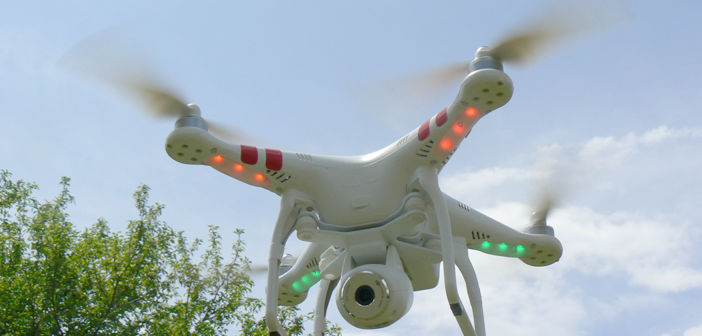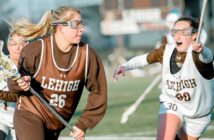The Lehigh University Police Department has acquired a new drone to assist their crime prevention unit.
Edward Shupp, the chief of the Lehigh University Police Department, said the drone was acquired approximately 15 months ago using the police department’s funds. Officer Drew Devery, of the crime prevention unit, is responsible for managing and maintaining the drone.
Shupp said privacy policies do not apply to the department’s drone, and any information and evidence acquired through the drone can be used by the police department. As long as the drone is flying under Federal Aviation Administration regulations, LUPD can use the drone for any purpose.
The drone has many features that will improve the department’s ability to survey areas on and around campus, Shupp said. It is equipped with a high-definition camera and a thermo-imaging camera, both of which allow the operator to watch over crowds or track a specific individual. The device can also reach the maximum FAA regulated flying height of 400 feet.
Shupp did not offer specific information about what the drone is used for, but explained why he thinks it is important to the campus community.
“There are a lot of camps and conferences around here, as well as children — we have a daycare on campus,” Shupp said. “That being said, with all the equipment (the drone) has on it, we can utilize it for a lot of things.”
In order to be certified to fly a drone, officers must go through training offered by the FAA, an FAA spokesperson told The Brown and White. The first step of training consists of becoming familiar with the drone, followed by proving demonstrative efficiency to the FAA. This training has to be completed by anyone who plans to fly his or her drone in public airspace.
The FAA spokesperson, who works for the AFF-80 branch in Washington, D.C., explained the differences between civilian use and law enforcement use of drones. Originally, LUPD qualified to operate its drone as a public aircraft, which left it responsible for the airspace it occupied, the FAA spokesperson said.
However, on Aug. 29, the FAA released new rules and regulations, titled “Part 107,” which gives all civilians specific guidelines to follow when operating a drone. LUPD has the option to continue flying the device as a public aircraft or to follow Part 107, the FAA spokesperson said. Any of the regulations can be adjusted by requesting a waiver through the FAA.
Since drones have been introduced to the general public, there has been a lot of controversy surrounding where individuals can fly them. The FAA’s Part 107 clarifies what one can and cannot do with unmanned aircraft, but public opinion is still skeptical about their usage, mostly for privacy reasons.
Student opinion is split in regard to the LUPD’s drone use, and many students are still unaware the LUPD has a drone in its possession.
“I agree if its for the safety and well-being (of students), or for felony crimes, then its definitely acceptable,” Jake Lohman, ’18, said. “But if its something for the simple case of underage drinking in a backyard, which 90 percent of Lehigh does, then that would be definitely over the top.”
The drone was most recently used when there was a call of shots fired in the area. The drone was used to get aerial footage to see if anyone was in the area, Shupp said.






Comment policy
Comments posted to The Brown and White website are reviewed by a moderator before being approved. Incendiary speech or harassing language, including comments targeted at individuals, may be deemed unacceptable and not published. Spam and other soliciting will also be declined.
The Brown and White also reserves the right to not publish entirely anonymous comments.
4 Comments
A recent use of this drone was to help the LUPD bust a fraternity party. It seems like Ed Shupp knows exactly what he wants to use it for. Thanks for keeping the children and the conferences safe.
OH GOD THINK OF THE CHILDREN
Honestly, how is that the go-to reason?
Pingback: The Weekly Drone Publication: UAS Digest #55 | JDA Journal
Hello big brother! Can we spend our money on academic instead of wasteful things we don’t need.